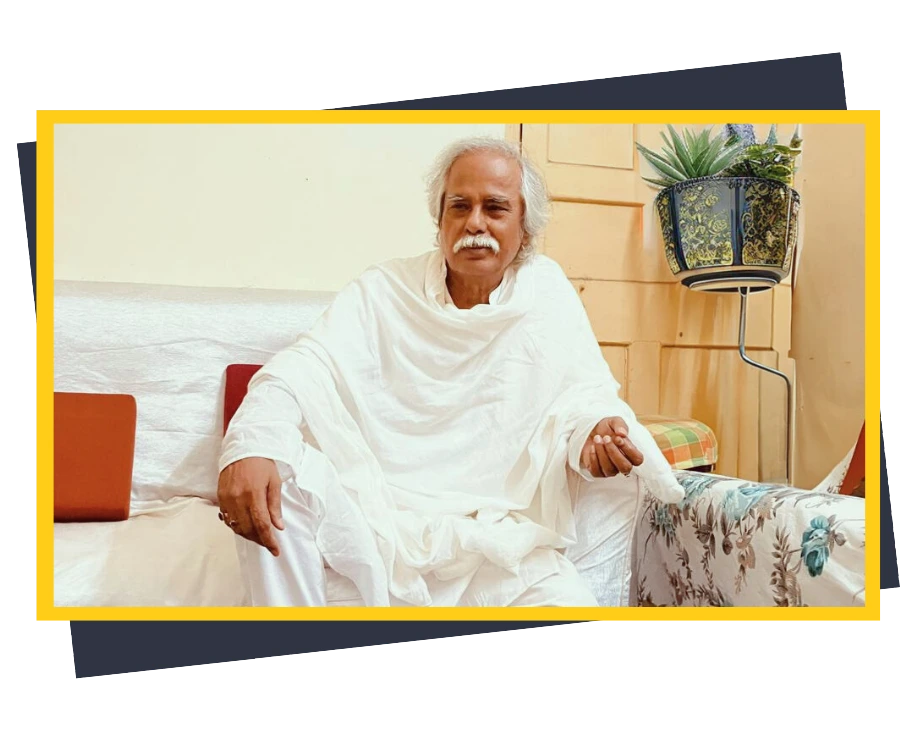
If you are searching for a Guru to guide you toward the liberation of your soul, how will you know who is your true Guru? How can you be sure that he is the one meant for you? When you search with an intense longing, with the mindset of "I know nothing; I need to know," you will undoubtedly find the person to whom you can offer your love and devotion.
A Guru cannot be chosen through intellectual judgment alone. The worldly intellect seeks only personal gains, and when combined with ego and pride, it blocks the path of true spiritual growth. However, if you observe a person who lives like others and refrains from pointing out others' mistakes, you must question whether this person is merely providing comfort and love, or if he is capable of guiding you on the path of self-realization.
It is important not to be overly emotional when seeking a Guru. You must carefully observe whether your own emotions, arrogance, or ego are influencing your perception of the Guru. There are many reasons why people seek the company of a Guru. Some do so for self-realization, others for grace, and still others because they see the Guru as a close companion. Those who seek self-realization typically have a greater presence of spirituality within them. Their tanmatra (the subtle essence of the five elements) is slightly different from others.
Those who seek grace must repeatedly ask themselves, "Why have I come?" Grace is not found solely with the Guru; it exists everywhere in nature. A worthy person receives grace according to their qualities, and through surrender, they come to understand that grace is available to all. There are also those who come to select a Guru, and through this process, their body and mind are purified.
Disciples, or shishyas, may want to become devotees either out of fear or devotion. In the Bhagavad Gita, Lord Krishna speaks of four types of devotees: Āarta (the distressed), Arthārthī (those with desires), Jijñāsu (the seeker of truth), and Jñānī (the self-realized). A Guru must work with all these types of individuals, guiding them according to their needs.
Because of the mind's restlessness, one cannot easily comprehend the Gurushakti (the power of the Guru). This is why Kriya Yoga is practiced—to still the mind and connect with the divine. Kriya Yoga is the process of returning to the source, and through deep prayer, determination, and grace, stillness of mind can be attained.
The mind is an expression of Brahman. When the Atman (soul) comes under the influence of Prakriti (nature), the mind manifests. When the mind becomes deeply anxious, it is the Guru who comes to the rescue. The Adi Guru (original Guru) resides as a dot or Bindu in the Ājñā Chakra (third eye chakra). This is why adherence to the Guru is essential, as it leads to the opening of the Ājñā Chakra. This entire process is a sadhak's (seeker’s) personal journey. Within the chaos of the mind, there is stillness, and in this churning lies the present moment. Only by staying within this internal churning can one dissolve the mind and attain knowledge of the Nirguna Tattva (the formless essence).
As the prana (life force) moves up and down during this churning, there is a center point—the Sushumna (central energy channel). Holding onto this Sushumna calms and stills the mind. This is why unconditional surrender to the Guru is required. When the surrender is absolute, the Guru appears immediately when remembered—sometimes in physical form, and sometimes as white light. This white light represents divine knowledge, and within it resides the presence of the Guru.
The appearance of this white light signifies the cessation of inner conflict and doubt. With regular practice, feelings become more profound, allowing for deep meditation. When thoughts of the Guru arise, a sense of detachment from the world follows. However, this realization does not come easily; it requires perseverance and patience in practice. Eventually, the understanding of Brahman becomes innate and natural, and the mind will speak on its own: "Gurudeva, you are the doer." This is the ultimate act of complete surrender.
